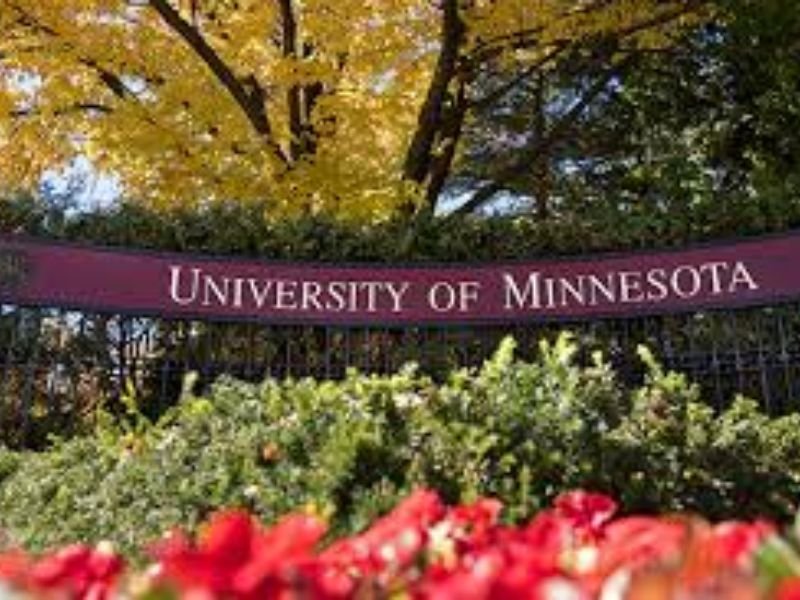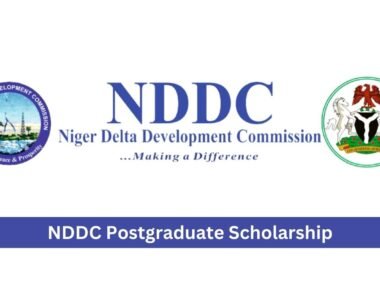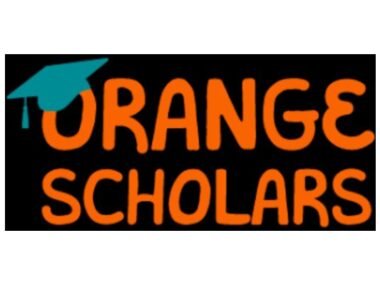The University of Minnesota (UMN), a premier public research institution, is renowned for its academic excellence, diverse programs, and vibrant campus life across its five campuses: Twin Cities, Duluth, Morris, Crookston, and Rochester. With over $50 million awarded annually in academic scholarships to freshman applicants, the question “Does University of Minnesota give merit scholarships?” is a critical one for prospective students seeking to offset the cost of higher education.
The answer is a resounding yes—UMN offers a robust array of merit-based scholarships to reward academic achievement, leadership, and other talents. This article provides a detailed exploration of UMN’s merit scholarship programs, eligibility criteria, application processes, and strategies for maximizing financial aid.
Overview of Merit Scholarships at the University of Minnesota
The University of Minnesota is committed to making education accessible, particularly through merit-based scholarships that recognize students’ academic excellence, extracurricular involvement, and unique contributions. Unlike need-based aid, which depends on financial circumstances, merit scholarships are awarded based on a student’s academic record, standardized test scores (if submitted), leadership, and other factors. UMN’s scholarship programs are highly competitive, with awards distributed based on a holistic review of the freshman admission application. In the 2021-2022 academic year, 60% of new students (3,735 total) at the Twin Cities campus received scholarships averaging $6,553 each, demonstrating UMN’s significant investment in its students.
Does University of Minnesota give merit scholarships? Yes, and these awards are available across all campuses, with the Twin Cities campus leading in funding due to its size and research prominence. Scholarships range from modest amounts, such as $1,000 per year, to substantial awards like the U of M Gold Scholar Award for National Merit Finalists, worth up to $10,000 annually for four years. This article will detail the types of merit scholarships, eligibility requirements, and application tips to help students navigate UMN’s financial aid landscape.
Types of Merit Scholarships at the University of Minnesota
1. University-Wide Academic Scholarships
Does University of Minnesota give merit scholarships at the university level? Absolutely. University-wide academic scholarships are among the most prestigious awards offered by UMN, available primarily to incoming freshmen at the Twin Cities campus. These scholarships require no separate application; students are automatically considered upon submitting a complete freshman admission application by the regular deadlines (November 1 for early action or January 1 for regular decision).
The university awards over $50 million annually in these scholarships, evaluating candidates based on academic preparation, high school performance, and additional factors like leadership and community involvement.
Key university-wide scholarships include:
-
U of M Gold Scholar Award: This award, worth up to $10,000 per year for four years, is offered to National Merit Finalists who designate UMN Twin Cities as their first-choice college by the National Merit Scholarship Corporation’s deadline. Students must contact the National Merit Scholarship Corporation at 847-866-5100 to confirm eligibility.
-
National Scholarship: Designed for non-resident freshmen, this scholarship offsets out-of-state tuition costs, making UMN a cost-effective choice for out-of-state students. Awards can reach up to $15,000 per year, depending on the student’s academic profile.
-
College-Specific Scholarships: Certain colleges, such as the Carlson School of Management or the College of Food, Agricultural and Natural Resource Sciences (CFANS), offer scholarships like the Carlson School of Management Scholarship ($2,000–$15,000 per year). These are awarded based on the admission application and may target specific majors or achievements.
2. College and Departmental Scholarships
Does University of Minnesota give merit scholarships through its colleges and departments? Yes, many of UMN’s colleges and academic departments offer merit-based scholarships tailored to students in specific programs. For example, CFANS awards scholarships ranging from $1,000 to $5,000 per year for four years, with no separate application required. Admitted students are automatically reviewed based on their admission application, with criteria including academic achievement, leadership, and career objectives.
The Diversity in Food and Natural Resources Scholarship (DFNRS) is a notable example, offering significant four-year awards to students committed to increasing diversity in CFANS fields. Other colleges, such as the College of Liberal Arts (CLA), also provide merit scholarships. For instance, a student with a 3.8 GPA and strong extracurriculars might receive a CLA scholarship of $4,000 per year, as noted in a Reddit discussion. These awards are often supplemented by state grants for Minnesota residents.
3. Scholarships for National Merit Semifinalists and Finalists
Does the University of Minnesota give merit scholarships specifically for National Merit scholars? Yes, UMN is a college sponsor of the National Merit Scholarship Program, offering two key awards for National Merit Finalists:
-
U of M Gold Scholar Award: As mentioned, this provides up to $10,000 annually for four years to Finalists who select UMN Twin Cities as their first-choice school.
-
National Merit University of Minnesota Scholarship: Worth $1,000 per year for four years, this award is available to Finalists who are not eligible for corporate-sponsored or National Merit $2,500 scholarships. Students must declare UMN as their first-choice college.
These scholarships are highly competitive, with preference given to students who meet the National Merit Scholarship Corporation’s deadlines. Students are encouraged to submit their admission application by November 1 or December 1 for full consideration.
4. Scholarships for International Students
Does the University of Minnesota give merit scholarships to international students? Yes, although options are limited compared to those for U.S. citizens or permanent residents. International students at the Twin Cities campus can apply for:
-
Global Excellence Scholarship: This merit-based award provides up to $25,000 per year, based on academic merit and holistic application review.
-
RaiseMe Micro-Scholarships: Available to international and domestic students, these awards (up to $2,500 per year) are earned through academic and extracurricular achievements in high school.
-
External Scholarships: International students can pursue scholarships like the Fulbright Foreign Student Program or Google PhD Fellowship, though these often require separate applications.
International students must demonstrate academic excellence and, in some cases, financial need through documentation. The university’s test-optional policy for 2025–2027 ensures that international students who do not submit ACT/SAT scores are still considered for merit scholarships.
5. Specialized Scholarships
Does the University of Minnesota give merit scholarships for specific groups or interests? Yes, UMN offers targeted scholarships to recognize unique talents or backgrounds:
-
Land-Grant Legacy Scholars Program: This program supports up to 25 CFANS students from Greater Minnesota, selected based on their admission application.
-
Ecolab Scholars Program: Aimed at students committed to sustainability and environmental issues, this scholarship supports those with financial need and a strong academic record. Applications open annually from March to mid-April.
-
Thielen Family Scholarship: This renewable scholarship supports part-time students who are employed and demonstrate the importance of a college degree to their career.
-
Minnesota Academic Excellence Scholarship: This award recognizes outstanding ability in subjects like English, fine arts, or STEM, and is available to students at Minnesota State institutions or UMN campuses.
Eligibility and Application Process
General Eligibility Criteria
Does the University of Minnesota give merit scholarships based on specific criteria? Yes, eligibility typically includes:
-
Academic Excellence: A strong high school GPA (e.g., 3.5 or higher) and rigorous coursework are the primary factors. UMN’s test-optional policy for 2025–2027 means ACT/SAT scores are not required, but submitting scores may enhance scholarship consideration for certain awards.
-
Holistic Review: UMN evaluates academic preparation, leadership, extracurricular activities, and individual circumstances, such as overcoming social or economic barriers.
-
Enrollment Status: Most merit scholarships require full-time enrollment (12+ credits per semester) and a minimum 3.0 cumulative GPA for renewal.
-
Residency: Some scholarships, like the National Scholarship, are exclusive to non-residents, while others, like the Minnesota Academic Excellence Scholarship, prioritize Minnesota residents.
-
FAFSA for Certain Awards: While most merit scholarships do not require financial need, some, like the Ecolab Scholars Program, mandate FAFSA completion by March 1 to demonstrate need.
International students and those eligible for the Minnesota Dream Act (undocumented students meeting specific criteria) can also qualify for certain merit scholarships, though availability is limited.
Application Process
Does University of Minnesota give merit scholarships with a streamlined application process? Yes, one of the most appealing aspects of UMN’s merit scholarship program is its simplicity. Key details include:
-
No Separate Application for Most Scholarships: Admitted freshmen are automatically considered for university-wide and college-specific scholarships upon submitting their admission application by November 1 (early action) or January 1 (regular decision). Late applications are considered on a funds-available basis, but funding is often depleted after January.
-
Specific Scholarship Applications: A few scholarships, such as the Ecolab Scholars Program or Thielen Family Scholarship, require separate applications, typically available from March to June. Students should check the One Stop Student Services website (onestop.umn.edu) for details.
-
National Merit Scholarships: Students must designate UMN as their first-choice college with the National Merit Scholarship Corporation and meet deadlines for awards like the U of M Gold Scholar Award.
-
External Scholarships: Students can apply for external scholarships through organizations like RaiseMe or the Minnesota Office of Higher Education. Funds must be sent to UMN’s Financial Aid Office with clear instructions on usage.
Award notifications are typically sent by the end of March for incoming freshmen, with a comprehensive financial aid package (including grants, loans, and scholarships) detailed in April for those who submit the FAFSA.
Tips for a Successful Application
To maximize the chances of receiving merit scholarships, students should:
-
Apply Early: Submitting by the November 1 early action deadline ensures full consideration for scholarships, as funds may be limited after January 1.
-
Highlight Achievements: Emphasize academic rigor, leadership roles, and community involvement in the admission application, as these are key factors in the holistic review.
-
Submit Test Scores (Optional): While UMN is test-optional, submitting strong ACT/SAT scores can enhance eligibility for scholarships with test score requirements, such as certain merit awards at UMD.
-
Complete the FAFSA: Even for merit-based scholarships, completing the FAFSA by March 1 can open doors to need-based awards that complement merit aid.
-
Explore External Opportunities: Use platforms like RaiseMe to earn micro-scholarships or contact the Minnesota Office of Higher Education for state-specific awards.
Maximizing Financial Aid Beyond Merit Scholarships
Does the University of Minnesota give merit scholarships as part of a broader financial aid strategy? Yes, students can combine merit scholarships with other forms of aid to reduce costs:
-
Federal and State Grants: Pell Grants (averaging $3,640 in Minnesota for 2019-2020) and Minnesota State Grants (e.g., $4,000 for a CLA student) are available for eligible students. The North Star Promise Scholarship covers remaining tuition and fees for Minnesota residents with a family AGI under $80,000.
-
Need-Based Scholarships: Awards like the ISSS Need-Based Scholarships for international students ($1,500–$5,000 per semester) require FAFSA or similar documentation.
-
ROTC Scholarships: UMN’s ROTC programs (Army, Air Force) offer merit-based scholarships for students pursuing military careers.
-
Work-Study and Loans: About 80% of first-year students at UMN Twin Cities receive financial aid, averaging $9,917, including grants, scholarships, and work-study. Loans, while not ideal, are also an option.
-
Promise Programs: UMN’s Promise Programs guarantee funds for Minnesota residents meeting income criteria, particularly at the Duluth campus.
For example, a student with a 3.8 GPA and strong extracurriculars might receive a $4,000 CLA scholarship, $4,000 in Minnesota State Grants, and additional need-based aid, significantly reducing costs.
Challenges and Considerations
Does the University of Minnesota give merit scholarships without challenges? No, there are several considerations:
-
Competitive Nature: Merit scholarships are highly competitive, and meeting minimum requirements does not guarantee an award. Funds are limited, especially for late applicants.
-
Renewal Requirements: Most scholarships require a minimum 3.0 GPA and full-time enrollment for renewal. Failure to meet these standards can result in loss of funding.
-
Limited Funding for In-State Students: In-state students may receive smaller awards due to lower tuition costs (approximately $15,000 per year for residents vs. $30,000 for non-residents).
-
International Student Restrictions: International students face fewer scholarship options and must often rely on external or need-based awards.
-
Funding Variability: Social media discussions indicate variability in award amounts, with some students receiving $2,000–$15,000 per year based on residency and academic profile.
Recent Trends and Updates (2020–2025)
Does the University of Minnesota give merit scholarships in response to recent trends? Yes, UMN has adapted its scholarship offerings to align with modern educational needs:
-
Test-Optional Policy: For 2025–2027, UMN’s test-optional policy ensures that students who do not submit ACT/SAT scores receive full consideration for merit scholarships, emphasizing academic rigor and holistic factors.
-
Increased Funding: UMN awards over $50 million annually in academic scholarships, with 60% of Twin Cities freshmen receiving aid in 2021-2022.
-
Diversity and Inclusion: Programs like the Diversity in Food and Natural Resources Scholarship and the Minnesota Dream Act expand access for underrepresented groups.
-
Budget Challenges: A proposed 7% cut to academic programs and a significant tuition hike in 2025 may impact scholarship availability, though UMN remains committed to affordability.
Conclusion
Does University of Minnesota give merit scholarships? Unequivocally, yes. From university-wide awards like the U of M Gold Scholar Award to college-specific scholarships and programs for international students, UMN offers a wide range of merit-based funding opportunities. With no separate application required for most awards, students can focus on crafting a strong admission application by November 1 or January 1 to maximize their chances. By combining merit scholarships with grants, need-based aid, and external opportunities, students can significantly reduce the cost of attending a top-tier research university.
For more information, visit the Office of Admissions (admissions.tc.umn.edu), One Stop Student Services (onestop.umn.edu), or the Minnesota Office of Higher Education (ohe.mn.gov). Prospective students should apply early, highlight their achievements, and explore all available aid options to make their UMN education affordable. Whether you’re a National Merit Finalist, an international student, or a Minnesota resident, UMN’s merit scholarship programs are designed to support your academic journey and help you become a Golden Gopher.







